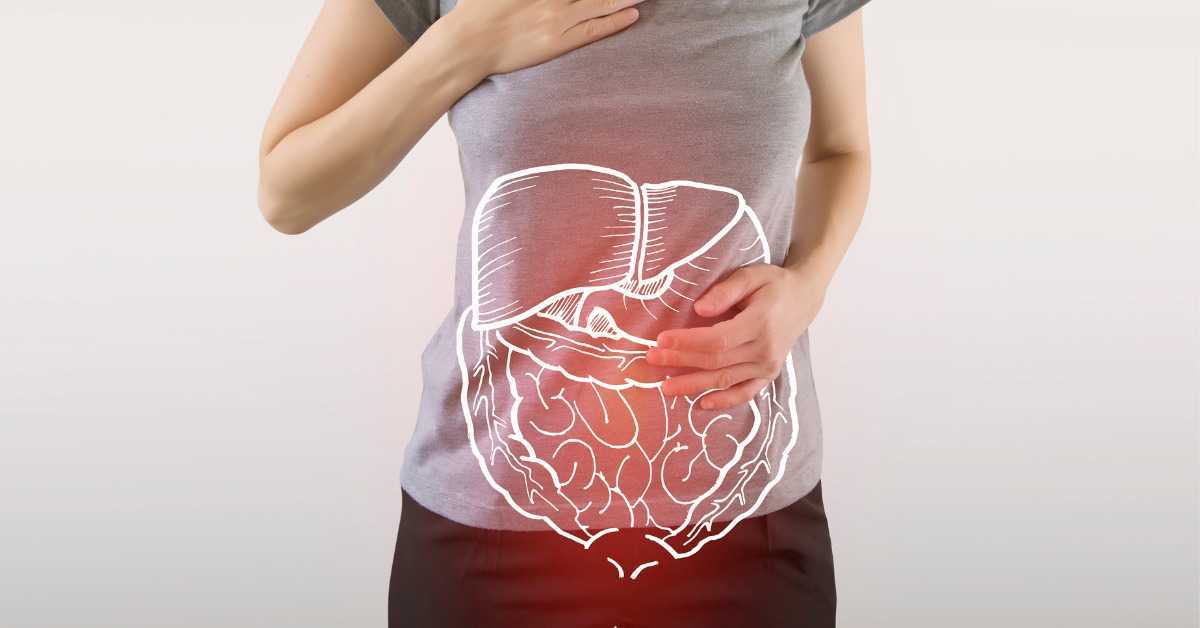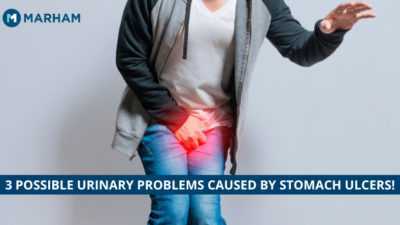Did you know that according to data every one in ten people develops an ulcer at some point in their life? Shocking, right? Stomach ulcers are the most common kind and are usually linked with a lot of complications.
But, can stomach ulcers cause urinary problems? See all the facts and answers to questions like this in this health blog.
A Little About Stomach Ulcers:
A stomach ulcer, also known as a gastric ulcer, is a rupture in the tissue lining the stomach. It was formerly generally believed that the main causes of stomach ulcers were stress, smoking, and poor nutrition.
The Helicobacter pylori (H. pylori) bacteria, on the other hand, is now recognized to be responsible for the majority of duodenal ulcers and 60% of stomach ulcers. The H. pylori bacteria also causes various dyspepsia (indigestion) symptoms.
Symptoms of Stomach Ulcers:


People suffering from ulcers may have none or all of the following symptoms:
- Belching
- Nausea
- Bad breath, even with good oral hygiene
- Indigestion
- A feeling of fullness
- Burning sensation in the upper abdominal region
- Painful stomach whenever hungry
Some people have recurring ulcers but no symptoms, while others have healed ulcers yet continue to have ulcer symptoms. You can click here to see a doctor online via Marham if you have any of these symptoms.
Can Stomach Ulcers Cause Urinary Problems?
Since the most common cause of stomach ulcers is an H. pylori infection, we will talk about how it may lead to urinary problems. The H. pylori bacteria may be responsible for the following urinary and bladder problems:
1. Interstitial Cystitis (IC)
Interstitial cystitis is a chronic disease that causes urinary pressure, discomfort, and, in some cases, pelvic pain. The soreness ranges from minor to severe. This disorder is one of a group of conditions known as painful bladder syndrome.
According to research called Helicobacter Pylori Induced Interstitial Cystitis:
“Scientists found that over 87% of individuals with interstitial cystitis (IC), Trigonitis of unknown etiology, and/or urethral syndrome (but no bladder infection) tested positive for H-pylori.”
Also, read Can You Die from a Stomach Ulcer?
2. Frequent Urination
Frequent urination might be a symptom of a stomach ulcer in some cases. However, it is more likely to be caused by a urinary tract infection, pregnancy, diabetes, or other medical issues rather than an ulcer. If you’ve been experiencing frequent urination for a long period, see a doctor right once.
3. Symptoms of UTI:
A urinary tract infection (UTI) is an infection of the urinary tract. The bladder and urethra are the most often infected parts of the urinary system. Women are more likely than males to have a UTI.
Patients with H-pylori may present with symptoms similar to UTI according to research. This connection is important in the pathogenesis of IC with inflammation of bladder wall cells.
Consult a Stomach Specialist Online!
So, can stomach ulcers cause urinary problems? There is no definite answer because the case can be different for every person. While many researchers have linked ulcers with urinary issues there is still very little evidence to say anything for sure.
If you have any urinary problems or symptoms of a stomach ulcer it is extremely important that you see a gastroenterologist/stomach specialist as soon as possible to avoid complications.
Can’t Find the App?
| Android | IOS |
|---|---|
  |
  |
FAQs
Do ulcers cause frequent urination?
Frequent urination is usually not a symptom of ulcers and is more frequently caused by other medical issues like diabetes or kidney disease. However, if you believe you have frequent urination due to a stomach ulcer consult your doctor for an expert opinion.
What organs are affected by ulcers?
Ulcers are lesions that mostly occur on the stomach lining or the first section of the small intestine (the duodenum). Stomach acids and other digestive secretions contribute to the formation of ulcers by burning the linings of these organs.
What body systems are affected by stomach ulcers?
The common symptoms of stomach ulcers include stomach pain, which might seem like indigestion at times, and nausea. So, they mostly, affect the gut area, and the bladder in some instances.

